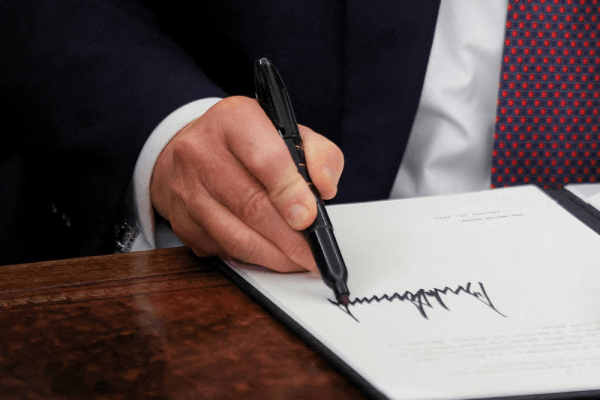It’s been well documented that America has a long history of systematic violence — one that has led to a present-day society left with little choice but to constantly question our prison and policing system. Through both the government and the church, violence has been used from the beginning against native peoples and other peoples of color. It is a long and complicated history, but one thing is clear: Time and time again, violence has defined us when it shouldn’t have.
So in a nation founded on violence, how are we to respond when young indigenous people are beaten to death by police or young black men are shot in the front seat of their cars? What do we do when young Muslim women are assaulted on the way to say prayers with their community? In an attempt to protect ourselves from violence, we actually bring violence to our schools and neighborhoods, because we live a gospel of violence perpetuated over time by our attitudes of hate and racism toward one another.
Long before Andrew Jackson, Thomas Jefferson began formulating the first policy to remove native people from their lands, using military force when and if necessary, continuing the work of The Doctrine of Discovery, which had originally given Christian Europeans “ultimate dominion” over land in America. So the very Gospel of America, based on a connection between government and European Christian values, is a gospel of guns and violence and not the gospel of Jesus.
When our gospel becomes one of violence, our way of doing justice and bringing kingdom becomes a warped version of the gospel.
Jesus was not a killer.
Jesus was for those who were targeted.
Jesus cared for those who were discriminated against.
Jesus was for diversity in the kingdom of God.
If institutions like the Southern Baptist Church can trip over process on their way to condemning the alt-right while looking their African-American members in the face, it says something of the church's complicity in our nation’s violent attitudes as well. So if we are to be people of peace, we must begin in our communities, in our worship spaces, in our neighborhoods, in our attitudes with one another.
If we live the gospel of the nonviolent Jesus, we live the gospel of reversing systems that are, in themselves, made to be violent.
One thing that is for certain, beyond political party or opinions on whether we should carry guns, is that this conversation is not ending anytime soon. So we have a decision to make as a nation, as people, as institutions. We either continue the cycle of violence and support it by our church silence, or we speak out and listen to people of color, those who are targeted because of their race or religion, and those who have been oppressed most by the messages and actions of a violent nation that calls itself Christian.
To defend our democratic values, we cannot just be concerned with holding our elected officials accountable by showing up and voting. We must also take a look at how day-to-day violence has shaped our political institutions, such as police-civilian relations, politics of mass incarceration, and recent human rights abuse at places like Standing Rock. From that knowledge, we must move toward making space for shalom and reconciliation in our communities, cities, states, and nation.
If we create and manage systems based truly on the fact that all people are worth living healthy and whole lives, we would deal with violence differently. In our churches if we truly believe that Jesus calls us to value all life, we would view justice and reconciliation differently, and in turn it would change the way we value the people of our society. This should happen under any president, in any political climate, because the value of people did not change in Jesus’ eyes based on where he lived or with whom he lived. So our call to reform institutions that perpetuate cycles of violence and racial discrimination should ring louder today than it ever has if we truly want to become the nation we so hope to be.
Got something to say about what you're reading? We value your feedback!








